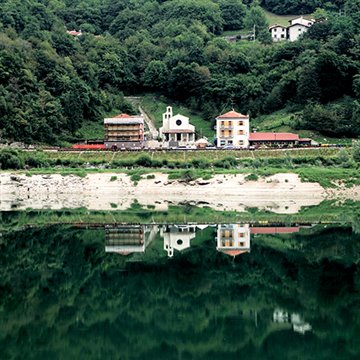 Andrea Maroè
Andrea Maroè
How is the old banned wood? A trip from Moggio, to beyond the abandoned villages of Moggessa
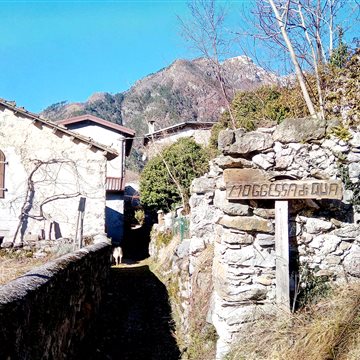


It was right where I am now that a century ago, a bullet from an Austrian sniper seriously injured her.
She had stopped for a moment to rest, after having unloaded an important but very heavy load of ammunition from her basket.
The wounded woman was called Maria Plozner Mentil. Who was she?
It’s a cool, late-summer morning. In the mountains, at over 1500m above sea level, autumn arrives earlier than elsewhere.

I am in Carnia, in the municipality of Paluzza, with other hikers who have come to Friuli Venezia Giulia for the Outdoor Tourism Exchange. Accompanied by Marco, an alpine guide, we follow the easy and broad CAI path no. 102, which leads from Malga Pramosio to the Avostanis lake.
Bad weather prevented us from enjoying the view that surrounds us, and even though we are almost on the shore of Lake Avostanis, we cannot see it because of the mist.
But we have seen and discovered another very interesting thing.
A few metres from Malga Pramosio, returning from the lake under a persistent rain, we see a plaque dedicated to a Carnic bearer.
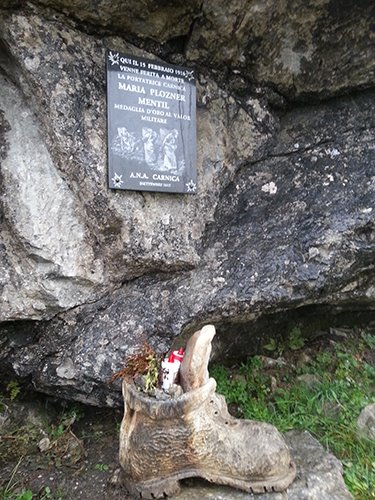
Who were these Carnic bearers?
Patiently, Marco explains that they were women of Carnia (many from Paluzza), who during the First World War made a fundamental contribution in supplying the men engaged on the battlefield, which here was in the high mountains.
There were no roads connecting the highest parts of the mountain to the valley floor, so everything needed had to be carried. Gerle were used for the purpose: large wooden baskets loaded with provisions, medicines, ammunition and anything else of use to men engaged in combat. (http://www.donneincarnia.it/ieri/portatricicarniche.htm)
With loads of about 40 kg on their shoulders, heroic women tackled these paths in all weather conditions (often with snow to the knees) and risked their lives in these mountains, all for little more than a lira a trip. And one of them lost her life: the 32-year-old Maria Plozner Mentil, mother of four children, died in Paluzza a few hours after receiving her wound.
In 1997, the former President of the Republic Scalfaro honoured Maria P.M. with a gold medal for military valour, as representative for all the bearers from Carnia. In addition, the barracks of the mountain troops in Paluzza, the only Italian barracks dedicated to a woman, also bears her name.
Today, times have changed and we go trekking along the border, at times following the Great War trails. Austria is no longer an enemy country and we can enjoy the view of the Alps while we drink a beer in the mountain hut with some Austrians.
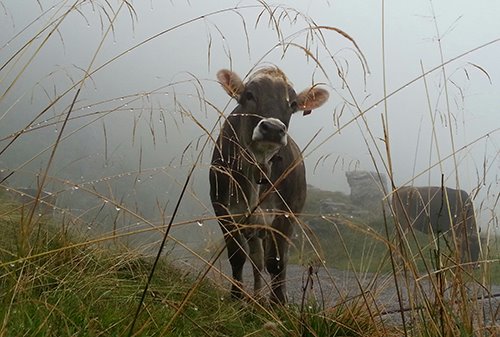
But from now on, every time I return here, I will remember the efforts and the spirit of sacrifice these women showed for this land, helping men at war to defend our borders. And never again will I complain about the weight of my rucksack ...
Find out about the ideas and offers for this experience in Friuli Venezia Giulia
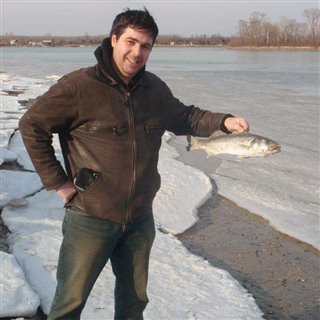
 Andrea Maroè
Andrea Maroè

 Andrea Maroè
Andrea Maroè
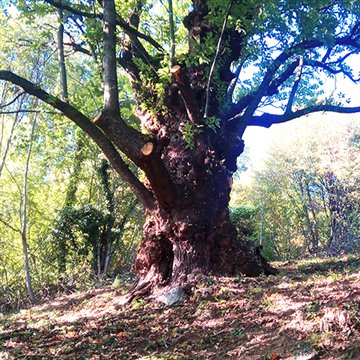
 Michele Castro
Michele Castro
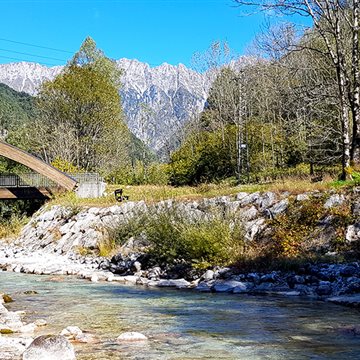
 Elisabetta Chinellato
Elisabetta Chinellato
